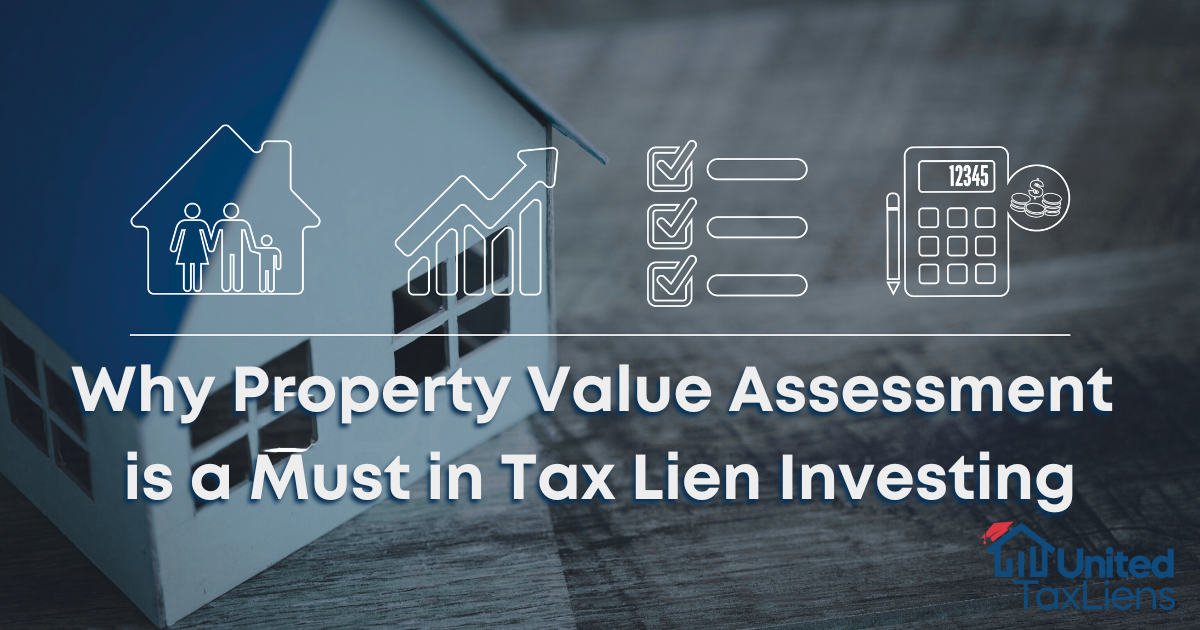Before you even think about placing a bid at a tax lien auction, you need to have one crucial piece of information in your pocket: the property’s true value. Without a solid understanding of what a property is really worth, you’re just guessing. And when it comes to tax lien investing, making decisions on a hunch can be a fast track to regrets. Accurately assessing property value is what separates smart investors from those who end up in over their heads.
One of the biggest reasons value assessment matters is because it guides your bidding decisions. Knowing how much a property is worth compared to what’s owed in back taxes gives you a clear idea of whether it’s a smart buy or one to pass on. After all, you’re not just buying a lien—you’re buying the potential of that property, whether that means a quick redemption or, in some cases, the chance to take ownership. If the numbers don’t add up, there’s no point in getting swept up in the excitement of an auction only to pay more than it’s worth.
A solid value assessment also helps you gauge risk. Tax lien properties aren’t always in pristine condition. Some might have been abandoned for years, while others might need serious repairs. The last thing you want is to pick up a property only to find out it’s a money pit. Doing your homework ahead of time means you can factor in potential repair costs and understand exactly what you’re getting into. That way, if you do end up having to take ownership, you’re not blindsided by unexpected expenses.
Your assessment also helps you set a budget and stick to it. Auctions can get heated, and it’s all too easy to get caught up in a bidding war. But with a clear idea of the property’s worth, you can set a maximum bid and walk away confidently when the price starts creeping too high. Knowing when to step back is just as important as knowing when to place your bid.
And then there’s the matter of redemption. A property’s value can give you insight into whether the owner is likely to redeem the lien or let it go. Higher-value properties tend to get redeemed more often, since the owner has more incentive to protect their asset. If you can get a feel for which properties are likely to be redeemed quickly and which might end up in your hands, it makes planning your returns—and your next move—that much easier.
Accurate value assessment is also the cornerstone of your due diligence. It’s not just about looking at the surface. You need to consider the property’s location, condition, and any local market trends that might impact its future worth. Is the neighborhood on an upswing? Are there any upcoming developments that could boost value? It’s these kinds of details that can turn a good investment into a great one—or steer you away from a deal that’s not as solid as it seems.
Then there’s the broader market context. Property values don’t exist in a vacuum; they’re influenced by everything from local demand to the broader economy. Understanding how these factors play into a property’s value will help you make decisions that align with both your short-term and long-term goals. Maybe the market’s in a slump, but the area is poised for a comeback. Spotting these patterns is where value assessment goes from a simple check to a strategic advantage.
Doing a comparative analysis with other properties in the area is another smart move. If your target property’s value is significantly lower than similar properties nearby, it could indicate deeper issues, like structural problems or a less desirable location. On the flip side, if it’s priced well below the market norm, you might have a hidden gem on your hands—if you’re willing to dig a little deeper.
Of course, you also have to consider a property’s future potential. Is the area undergoing a transformation? Are there new projects planned that could increase property values? Sometimes, the real value of a property isn’t in what it’s worth today, but what it could be worth a few years down the line. If you can see the bigger picture, you’ll be able to spot opportunities that other investors might overlook.
And let’s not forget about the physical condition of the property. A run-down building can drastically alter the math on a tax lien investment. Structural repairs, roofing issues, or even just long-term neglect can add thousands to your costs. Understanding the condition upfront means fewer surprises if you end up taking ownership.
Finally, knowing the value helps shape your exit strategy. Whether you’re hoping for a quick redemption, planning to foreclose and take over the property, or looking to sell the lien to another investor, having a firm grasp on the property’s true worth keeps your strategy grounded. It’s not just about buying liens; it’s about ensuring every move you make is backed by solid numbers and sound planning.
In tax lien investing, a well-informed bid can be the difference between a profitable investment and a costly mistake. Taking the time to thoroughly assess property values isn’t just due diligence—it’s smart investing. When you know what you’re dealing with, you can move forward with confidence, no matter what the auction floor—or the market—throws your way.
This blog is for informational purposes only and should not be relied upon as financial or investment advice. Real estate investing carries risks, and individual results will vary. Always consult with your team of professionals before making investment decisions. The authors and distributors of this material are not liable for any losses or damages that may occur as a result of relying on this information.



